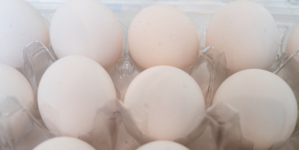-
The Best Times Graphics of 2024 - 20 mins ago
-
Eggs Recall Update as FDA Sets Highest Risk Level - 23 mins ago
-
Where is most at risk for tsunami flooding in NorCal? Check these maps - 32 mins ago
-
Woman’s Carry-on Flight Luggage Stuns TSA Officers - 58 mins ago
-
Under Pressure, Telegram Turns a Profit for the First Time - about 1 hour ago
-
Hand-written signatures were a sticking point for young California voters - about 1 hour ago
-
Colliding Drones Crash Into Crowd at Florida Holiday Show - 2 hours ago
-
‘Democrats Have Gone Beyond Soul Searching to Soul Spelunking’: 4 Writers Read the Party’s Fortune - 2 hours ago
-
Winter Weather Warnings in 16 States As 14 Inches of Snow To Hit - 2 hours ago
-
House Ethics Committee Is Expected to Release Report on Matt Gaetz’s Conduct - 3 hours ago
Abortion, Marijuana, and Taxes: Key Ballot Issues in South Dakota
South Dakota voters will face pivotal decisions on measures affecting abortion rights, recreational marijuana, food taxes, and primary election structures.
With issues spanning social, economic, and political landscapes, the outcomes could mark a shift in the state’s policies and priorities.
South Dakota’s abortion rights amendment aims to introduce protections within the state constitution.
If passed, it would prohibit restrictions on abortion within the first 12 weeks of pregnancy and limit regulations from the 13th through the 26th week to those directly related to patient health. After the 26th week, abortions would be allowed only to preserve the patient’s life or health.
The measure would override the state’s current abortion ban, which has been in place since 2022 and criminalizes performing an abortion except to save a patient’s life.

Erin Woodiel/AP Photo
While abortion rights advocates back the amendment as a way to restore personal freedoms, anti-abortion groups are mobilizing against it. A lawsuit by the Life Defense Fund, pending a court hearing in December, argues that alleged misconduct in gathering signatures should disqualify the measure from the ballot. Supporters of the measure see this legal challenge as a last-ditch attempt to defy voter intentions.
Marijuana Legalization
South Dakota voters are again considering legalizing recreational marijuana, a topic revisited frequently in recent years. This measure would allow adults aged 21 and older to possess up to two ounces of marijuana, excluding concentrated forms, and permit limited personal cultivation.
Despite voters approving medical marijuana in 2020 and an amendment legalizing recreational use, the state Supreme Court invalidated the recreational measure.
Another attempt failed in 2022. If successful, South Dakota would join 24 other states that have already legalized recreational cannabis. Proponents argue this could bring economic benefits, while opponents raise concerns over regulation and social impact.

Joe Ahlquist/AP Photo
Food Sales Tax
Another ballot measure could give grocery shoppers relief by removing the state sales tax on food. South Dakota lowered its general sales tax last year from 4.5 percent to 4.2 percent, and the new initiative would eliminate taxes on most food items, excluding alcohol and prepared meals.
State analysts project that this change could result in a $124 million annual revenue loss, or roughly 5 percent of the general budget. Proponents argue that reducing taxes on necessities will help residents facing high inflation, while critics worry about the financial affect on state-funded programs and services.
“Jungle” Primary System
A proposal to shift South Dakota’s primary election format to a “jungle primary” could redefine races. This initiative would allow all candidates, regardless of party affiliation, to run on a single primary ballot, with the top two vote-getters advancing to the general election.
Supporters believe the measure would allow independents and moderates a fairer shot and could better align election results with voter sentiment. However, both major parties oppose the initiative, contending it would harm smaller parties and might lead to an all-Republican ballot in a state where the GOP dominates.
As these diverse initiatives await a decision, the outcomes could signal significant changes in South Dakota’s legislative landscape.
This article includes reporting from The Associated Press
Source link






















